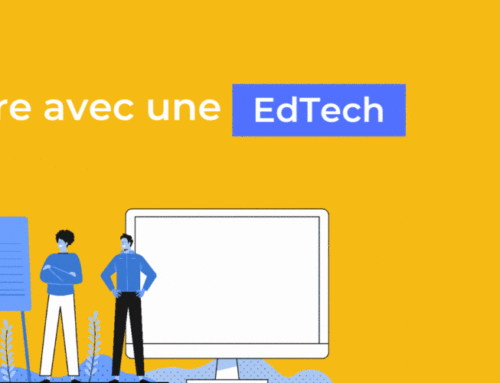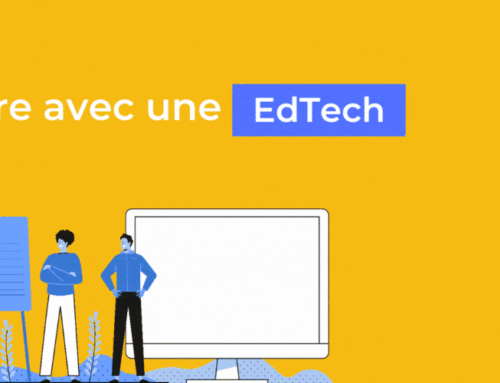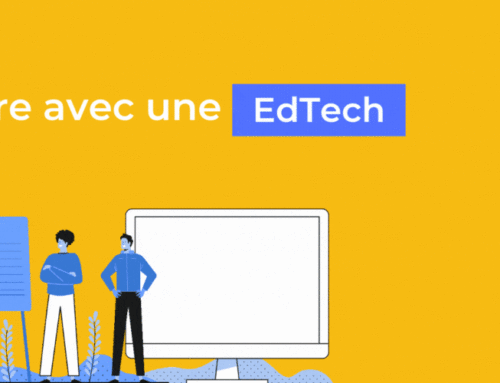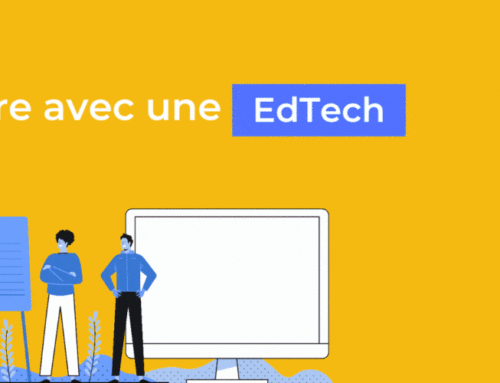
Valentina Redondo, EdTech France‘s Latin American project manager
In what context did you take on your mission here in Mexico?
Valentina Redondo: First of all, I have to say that although I am based in Mexico, I work on the whole Latin American region. There is a very strong dynamism and all the countries are united by the Spanish language except for Brazil where Portuguese is spoken and which is the most important nation both in surface and in population. Brazil is both the fifth largest country on the planet, covering almost half (47%) of South America and is the eighth largest economy in the world. For its part, Mexico is the 15th largest economy in the world and is, of course, the largest country in Central America. But the dynamism of EdTech in Latin America can also be seen in countries like Colombia, Argentina and Chile. Moreover, these countries, including Brazil and Mexico, have universities that are ranked at the top of the region.
What are the particularities of higher education in Mexico?
VR: First of all, I think it is important to point out that a large number, the majority, of Mexican universities are private structures. The public universities, on the other hand, are built on the French model. There is still a very strong cultural link with France and many Mexican students speak the French that is still taught in school. 30% of Mexican high school graduates speak French (they studied it at school) but once they reach university, they turn to German because German universities have established strong partnerships and welcome more Mexican students.
What is essential in this large country is to understand its diversity. There are the northern regions, close to the border with the United States, which are much richer than those in the south, which are still very traditional and dependent on tourism and agriculture. Incomes, occupations, and therefore the financial resources available to support higher education are very different from one state to another. The same is true for access to the internet or digital equipment; and it is also true for broader access to education. Mexico is a federal state, which reinforces territorial inequalities. You can imagine that the pandemic has not improved this situation and that much remains to be done for a young population that wishes to have access to higher education. This is also the wish of the country’s leaders, even if other priorities slow down the development of universities and public schools.
As far as EdTech is concerned, what is the situation and what are the perspectives?
VR: The situation is obviously very positive. If we look at the fundraising or the start-up launches related to education in the Latin American region, the dynamism is undeniable. Tech Monterrey University is a symbol of this transformation of the Mexican economy. It has 33 campuses in the country and has become a pole of competence that the federal state would like to transform into a leader for the continent, and into an academic representative of the Silicon Valley of Latin America. This ambition is supported by the proximity of the United States, and by the establishment of large North American and Canadian groups that generate a strong demand for jobs of engineers or qualified technicians. This demand is putting intense pressure on the Mexican education system and is helping to boost the emergence of distance learning platforms. This can be seen, for example, in the success of Slang, which offers English language training. We can also see it with other start-ups that offer professional training or retraining for IT jobs. American or Canadian funds are the biggest financiers of the development of the EdTech ecosystem in Latin America.
But, reassure us, all companies aren’t just about providing qualified employees to companies? Are EdTech companies also answering the challenge of access to education for all?
VR: Yes, of course. And that’s probably crucial for some states that don’t have those resources. With the pandemic, the disparities in equipment and connection became more obvious. Providing distance learning courses in rural areas already means guaranteeing access to the Internet and therefore to the platforms. However, in some rural areas of the country, teachers have been known to pick up their students’ homework from the pharmacy in the city center and bring it home for correction. Obviously this is an extreme situation, but it highlights the urgent need to develop access to knowledge for all in a country where infrastructure is sometimes limited. Increasing the number of students in higher education by 50% will only be possible if digital technology comes to the aid of institutions.
Does this mean that there is a place for French EdTech?
VR: Absolutely! There is so much to do that our start-ups can perfectly contribute to this development. However, I would like to draw their attention to the cultural differences between our country and this Latin American continent, including in the ways of presenting or negotiating partnerships. While our French culture of higher education is appreciated, we must also take into account the local administrative and political workings. But the potential is enormous and Mexicans, like other Latin American peoples, logically wish to avoid putting everything in the hands of their northern neighbors.
Thank you Valentina!
VR: Thank you Simone et les Robots!






